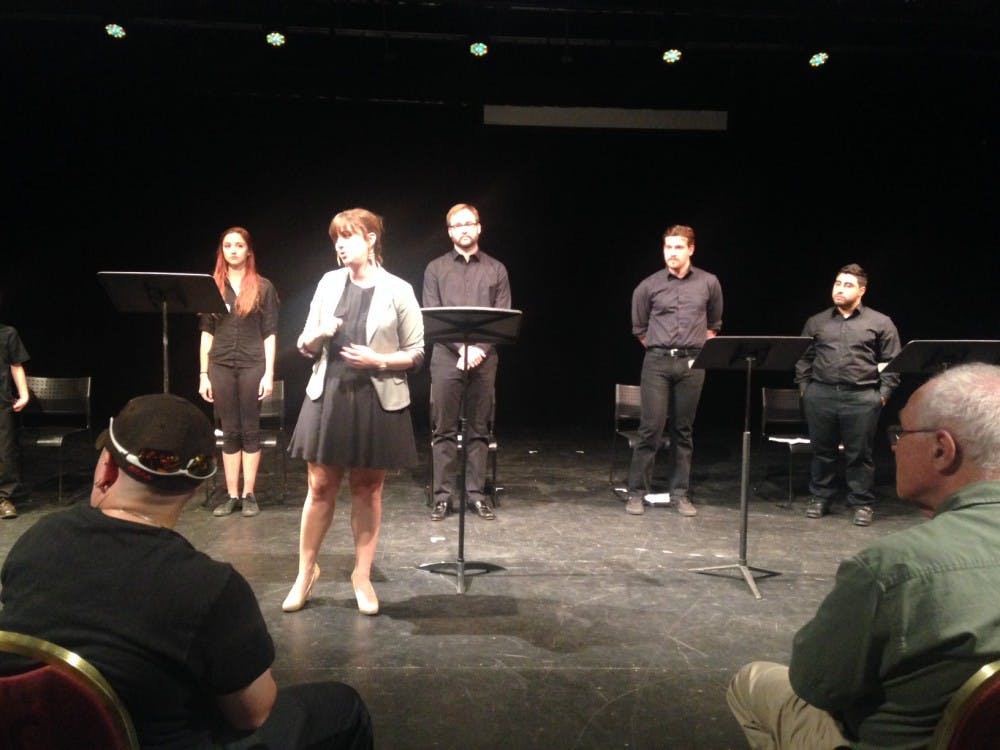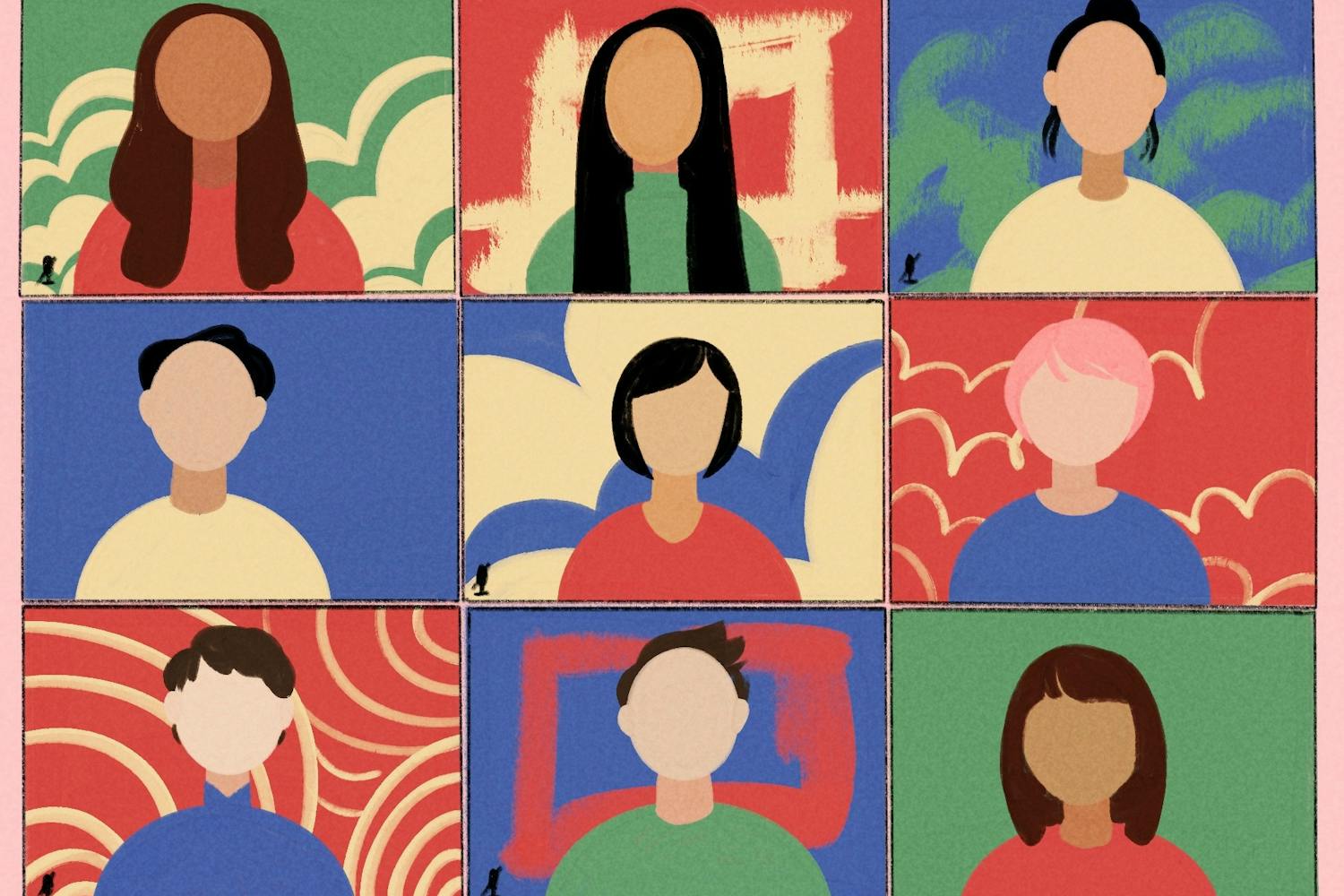An array of individuals gathered at the Nelson Fine Arts Center on ASU's Tempe campus to commemorate Holocaust Remembrance Day Wednesday evening, otherwise known as Yom Ha'Shoah, with a reading of Erwin Sylvanus' play "Dr. Korczak and the Children."
Erika Hurghes discussed the history of Janusz Korczak's life, legacy and memorable death while fighting for the well-being of over 60 children in a Polish orphanage during the Holocaust.
"His devotion to the psychological, emotional and physical well-being of the children at the expense of his own life offers us, bizarrely, a welcome respite of sense and ethics among the madness of the Holocaust," Hughes said.
When asked who among the audience members was familiar with Korczak prior to this event, only four or five hands went up, making this performance especially eye-opening for the majority of attendees.
The simple performance of true historical events detailed the beginning and end of Korczak's life as a Polish Jew, during which he went from losing his father at a very young age and working in an orphanage, where he formed close connections with its 66 children and remained with them up until the time of their murder at the hands of the Nazis.
"(Korczak) lived a life of love," the narrator said. "He loved and he never lied."
His honesty carried him to the end of his life, where he chose to sacrifice his opportunity for freedom in order to accompany the children to a camp where they were eventually murdered.
This story is one of a number of similar events that took place during the Holocaust, but Elizabeth Schildkret, who directed the play, said she hopes this performance will instigate a sense of collective memory, even for those who did not live through the age of the Holocaust.
"To somebody who wasn't directly a part of this event, I would like to see us all think collectively about how we remember the Holocaust, something that feels so distant from us," Schildkret said. "I want us to think about how we embody our memories."
Schildkret's sister and audience member Miriam Schildkret echoed these sentiments.
"I'm sure our perception of it has changed for those of us who weren't alive during World War II," she said. "It's important to talk about it."
In an effort to ignite this phenomenon of collective recollection, Elizabeth Schildkret initiated a post-show discussion that included a group activity wherein individuals joined together to physically embody their perceptions of a "Holocaust hero."
The audience members' stories and perspectives shared during the open discussion time signified a deep realization of the memory of the tragic era, which seemed to be the intention of the evening as a whole.
"We perform these plays because we have to keep moving," Hughes said.
Reach the reporter at celina.jimenez@asu.edu or on Twitter @lina_lauren.
Like The State Press on Facebook and follow @statepress on Twitter.




